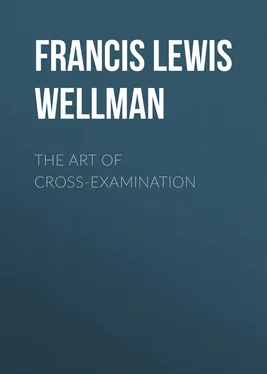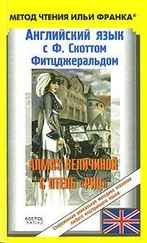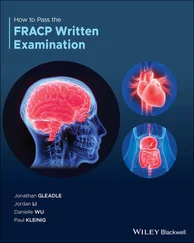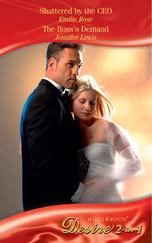Francis Lewis Wellman - The Art of Cross-Examination
Здесь есть возможность читать онлайн «Francis Lewis Wellman - The Art of Cross-Examination» — ознакомительный отрывок электронной книги совершенно бесплатно, а после прочтения отрывка купить полную версию. В некоторых случаях можно слушать аудио, скачать через торрент в формате fb2 и присутствует краткое содержание. Жанр: foreign_edu, Юриспруденция, на английском языке. Описание произведения, (предисловие) а так же отзывы посетителей доступны на портале библиотеки ЛибКат.
- Название:The Art of Cross-Examination
- Автор:
- Жанр:
- Год:неизвестен
- ISBN:нет данных
- Рейтинг книги:3 / 5. Голосов: 1
-
Избранное:Добавить в избранное
- Отзывы:
-
Ваша оценка:
- 60
- 1
- 2
- 3
- 4
- 5
The Art of Cross-Examination: краткое содержание, описание и аннотация
Предлагаем к чтению аннотацию, описание, краткое содержание или предисловие (зависит от того, что написал сам автор книги «The Art of Cross-Examination»). Если вы не нашли необходимую информацию о книге — напишите в комментариях, мы постараемся отыскать её.
The Art of Cross-Examination — читать онлайн ознакомительный отрывок
Ниже представлен текст книги, разбитый по страницам. Система сохранения места последней прочитанной страницы, позволяет с удобством читать онлайн бесплатно книгу «The Art of Cross-Examination», без необходимости каждый раз заново искать на чём Вы остановились. Поставьте закладку, и сможете в любой момент перейти на страницу, на которой закончили чтение.
Интервал:
Закладка:
"I suppose you had an iron safe in your office, in which you kept your books of account?" "Yes, sir."—"Did that burn up?" "Oh, no."—"Were you present when it was opened after the fire?" "Yes, sir."—"Then won't you be good enough to hand me the stock-book that we may show the jury exactly what stock you had on hand at the time of the fire on which you claim loss?" (This was the point of the case and the jury were not prepared for the answer which followed.) "I haven't it, sir."—"What, haven't the stock-book? You don't mean you have lost it?" "It wasn't in the safe, sir."—"Wasn't that the proper place for it?" "Yes, sir."—"How was it that the book wasn't there?" "It had evidently been left out the night before the fire by mistake." Some of the jury at once drew the inference that the all-important stock-book was being suppressed, and refused to agree with their fellows against the insurance companies.
The average mind is much wiser than many suppose. Questions can be put to a witness under cross-examination, in argumentative form, often with far greater effect upon the minds of the jury than if the same line of reasoning were reserved for the summing up. The juryman sees the point for himself, as if it were his own discovery, and clings to it all the more tenaciously. During the cross-examination of Henry Ward Beecher, in the celebrated Tilton-Beecher case, and after Mr. Beecher had denied his alleged intimacy with Mr. Tilton's wife, Judge Fullerton read a passage from one of Mr. Beecher's sermons to the effect that if a person commits a great sin, the exposure of which would cause misery to others, such a person would not be justified in confessing it, merely to relieve his own conscience. Fullerton then looked straight into Mr. Beecher's eyes and said, "Do you still consider that sound doctrine?" Mr. Beecher replied, "I do." The inference a juryman might draw from this question and answer would constitute a subtle argument upon that branch of the case.
The entire effect of the testimony of an adverse witness can sometimes be destroyed by a pleasant little passage-at-arms in which he is finally held up to ridicule before the jury, and all that he has previously said against you disappears in the laugh that accompanies him from the witness box. In a recent Metropolitan Street Railway case a witness who had been badgered rather persistently on cross-examination, finally straightened himself up in the witness chair and said pertly, "I have not come here asking you to play with me . Do you take me for Anna Held?" 7 7 This occurrence was at the time when the actress Anna Held was singing her popular stage song, "Won't you come and play with me."
"I was not thinking of Anna Held," replied the counsel quietly; "supposing you try Ananias !" The witness was enraged, the jury laughed, and the lawyer, who had really made nothing out of the witness up to this time, sat down.
These little triumphs are, however, by no means always one-sided. Often, if the council gives him an opening, a clever witness will counter on him in a most humiliating fashion, certain to meet with the hearty approval of jury and audience. At the Worster Assizes, in England, a case was being tried which involved the soundness of a horse, and a clergyman had been called as a witness who succeeded only in giving a rather confused account of the transaction. A blustering counsel on the other side, after many attempts to get at the facts upon cross-examination, blurted out, "Pray, sir, do you know the difference between a horse and a cow?" "I acknowledge my ignorance," replied the clergyman; "I hardly do know the difference between a horse and a cow, or between a bull and a bully—only a bull, I am told, has horns, and a bully (bowing respectfully to the counsel), luckily for me , has none." 8 8 "Curiosities of Law and Lawyers."
Reference is made in a subsequent chapter to the cross-examination of Dr. – in the Carlyle Harris case, where is related at length a striking example of success in this method of examination.
It may not be uninteresting to record in this connection one or two cases illustrative of matter that is valuable in cross-examination in personal damage suits where the sole object of counsel is to reduce the amount of the jury's verdict, and to puncture the pitiful tale of suffering told by the plaintiff in such cases.
A New York commission merchant, named Metts, sixty-six years of age, was riding in a Columbus Avenue open car. As the car neared the curve at Fifty-third Street and Seventh Avenue, and while he was in the act of closing an open window in the front of the car at the request of an old lady passenger, the car gave a sudden, violent lurch, and he was thrown into the street, receiving injuries from which, at the time of the trial, he had suffered for three years.
Counsel for the plaintiff went into his client's sufferings in great detail. Plaintiff had had concussion of the brain, loss of memory, bladder difficulties, a broken leg, nervous prostration, constant pain in his back. And the attempt to alleviate the pain attendant upon all these difficulties was gone into with great detail. To cap all, the attending physician had testified that the reasonable value of his professional services was the modest sum of $2500.
Counsel for the railroad, before cross-examining, had made a critical examination of the doctor's face and bearing in the witness chair, and had concluded that, if pleasantly handled, he could be made to testify pretty nearly to the truth, whatever it might be. He concluded to spar for an opening, and it came within the first half-dozen questions:—
Counsel. "What medical name, doctor, would you give to the plaintiff's present ailment?"
Doctor. "He has what is known as 'traumatic microsis.'"
Counsel. " Microsis , doctor? That means, does it not, the habit, or disease as you may call it, of making much of ailments that an ordinary healthy man would pass by as of no account?"
Doctor. "That is right, sir."
Counsel (smiling). "I hope you haven't got this disease, doctor, have you?"
Doctor. "Not that I am aware of, sir."
Counsel. "Then we ought to be able to get a very fair statement from you of this man's troubles, ought we not?"
Doctor. "I hope so, sir."
The opening had been found; witness was already flattered into agreeing with all suggestions, and warned against exaggeration.
Counsel. "Let us take up the bladder trouble first. Do not practically all men who have reached the age of sixty-six have troubles of one kind or another that result in more or less irritation of the bladder?"
Doctor. "Yes, that is very common with old men."
Counsel. "You said Mr. Metts was deaf in one ear. I noticed that he seemed to hear the questions asked him in court particularly well; did you notice it?"
Doctor. "I did."
Counsel. "At the age of sixty-six are not the majority of men gradually failing in their hearing?"
Doctor. "Yes, sir, frequently."
Counsel. "Frankly, doctor, don't you think this man hears remarkably well for his age, leaving out the deaf ear altogether?"
Doctor. "I think he does."
Counsel (keeping the ball rolling). "I don't think you have even the first symptoms of this 'traumatic microsis,' doctor."
Doctor (pleased). "I haven't got it at all."
Counsel. "You said Mr. Metts had had concussion of the brain. Has not every boy who has fallen over backward, when skating on the ice, and struck his head, also had what you physicians would call 'concussion of the brain'?"
Doctor. "Yes, sir."
Counsel. "But I understood you to say that this plaintiff had had, in addition, hæmorrhages of the brain. Do you mean to tell us that he could have had hæmorrhages of the brain and be alive to-day?"
Читать дальшеИнтервал:
Закладка:
Похожие книги на «The Art of Cross-Examination»
Представляем Вашему вниманию похожие книги на «The Art of Cross-Examination» списком для выбора. Мы отобрали схожую по названию и смыслу литературу в надежде предоставить читателям больше вариантов отыскать новые, интересные, ещё непрочитанные произведения.
Обсуждение, отзывы о книге «The Art of Cross-Examination» и просто собственные мнения читателей. Оставьте ваши комментарии, напишите, что Вы думаете о произведении, его смысле или главных героях. Укажите что конкретно понравилось, а что нет, и почему Вы так считаете.












